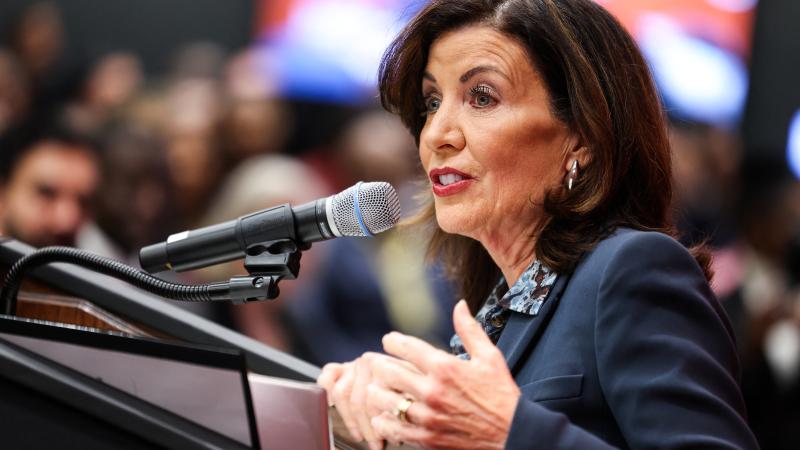Maine to consider red flag law
The Crisis Intervention Order Act would allow police, friends or relatives of a legal gun owner to seek an order if they believe that person poses a risk to themselves or others.
Legislation allowing police to seize firearms from anyone deemed a threat to themselves or others, called a red flag law, is being pushed by Maine's Democratic speaker in the House of Representatives.
The proposal, filed by Rep. Rachel Talbot Ross, D-Portland, would expand Maine’s existing yellow flag law by making it easier for law enforcement to seize firearms from people deemed a threat to themselves or others.
The Crisis Intervention Order Act would allow police, friends or relatives of a legal gun owner to seek an order if they believe that person poses a risk to themselves or others.
The order gives police authority to temporarily confiscate someone’s firearms and ammunition for up to a year. Once an order is filed with the court, a judge would be required to hold a hearing within 14 days to consider the complaint, but in "emergency" situations could issue a "crisis intervention order" over the phone, without notifying the subject of the order, according to Talbot's proposal.
"This bill will ensure that those people who are a risk to themselves and others can receive the help they need, while preventing senseless acts of violence," Ross said in a statement.
Democrats have been pushing to tighten the state's gun control laws in the wake of the Oct. 25 shooting by Army Reservist Robert R. Card Jr. in a Lewiston bowling alley that killed 18 people. Card died by suicide, according to authorities.
Maine has a yellow flag law but control advocates have long argued it limits the ability of authorities to take away a person’s weapons if they are considered a danger to themselves or others.
The National Rifle Association says red flag proposals would put Mainers "at risk of becoming felons for the simple act of transferring a firearm to a family member, friend, or neighbor."
"These laws strip citizens of their Second Amendment rights without due process based on weak and nebulous standards," the NRA said in a statement. "It does not include any penalties for erroneous accusations, allowing for an open season against gun owners in Maine."
The NRA has also criticized a plan that would set a three-day waiting period before an individual may receive a firearm they've purchased, which the NRA said would "deny the right of self-defense to abuse victims or any individual facing an imminent threat."
An independent commission launched by Gov. Janet Mills that reviewed events leading up to the October shooting recently issued a report noting that the state's yellow flag law might have prevented the incident if law enforcement had utilized it.
Mills, a Democrat, supported gun control policies during the 2018 gubernatorial primary but has largely resisted them as governor. She has filed a proposal to strengthen the yellow flag law.
Republicans have criticized Democratic lawmakers for seeking to politicize the Lewiston shooting to push through "radical changes" to Maine's gun control laws.
Regulations vary widely but at least 20 states and Washington, D.C., have red flag laws, according to the National Conference of State Legislatures.
Florida, Vermont, Rhode Island, Maryland and New Jersey all passed red flag bills after the Parkland, Fla., shooting.
New Hampshire lawmakers recently rejected a proposal to create a red flag law amid opposition from the Legislature’s Republican majority.
The Biden administration is trying to encourage more states to adopt red flag laws. Last week, U.S. Attorney General Merrick Garland announced creation of the National Extreme Risk Protection Order Resource Center, which provides advice to states considering similar restrictions.















